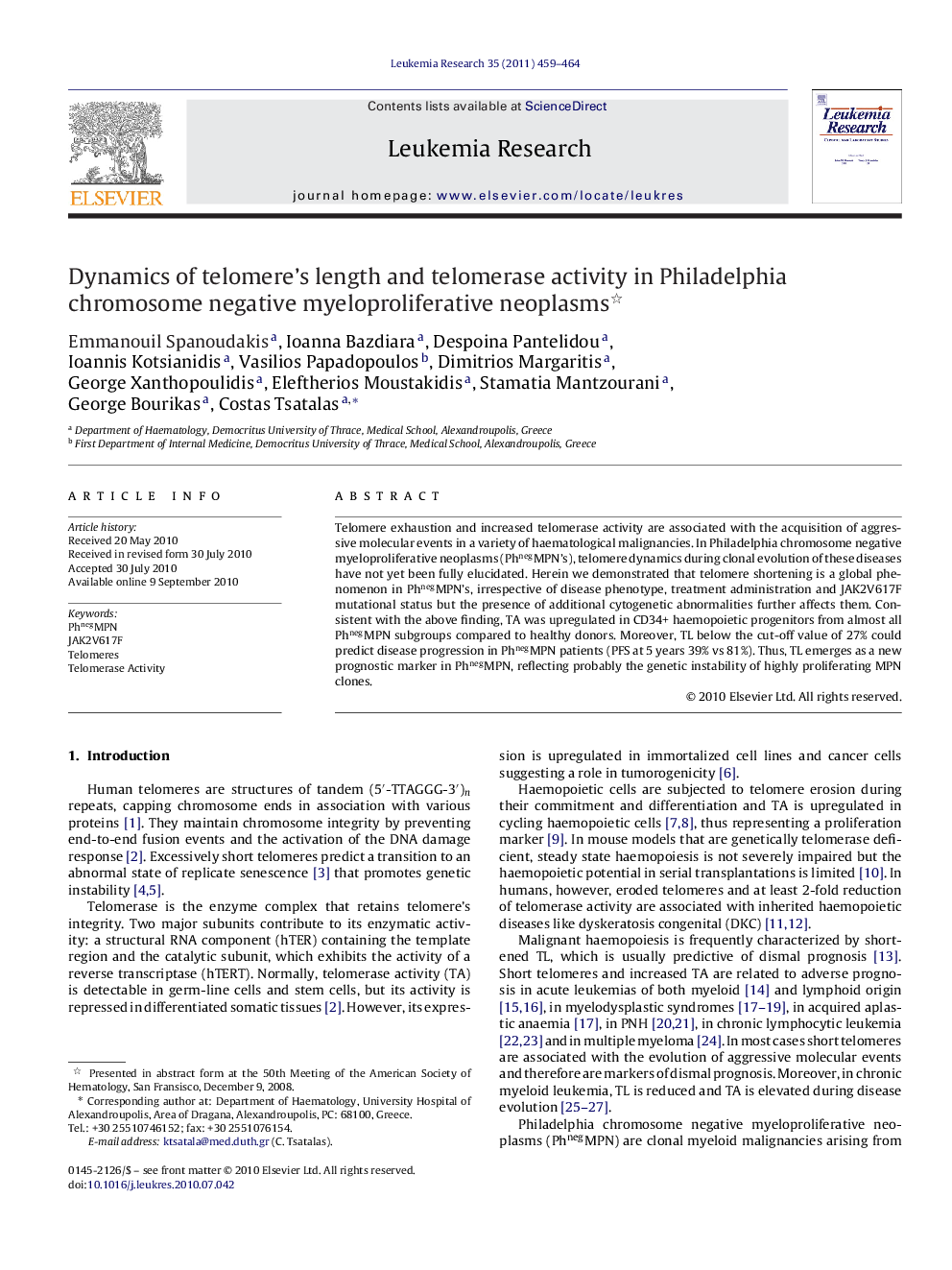| Article ID | Journal | Published Year | Pages | File Type |
|---|---|---|---|---|
| 2137328 | Leukemia Research | 2011 | 6 Pages |
Telomere exhaustion and increased telomerase activity are associated with the acquisition of aggressive molecular events in a variety of haematological malignancies. In Philadelphia chromosome negative myeloproliferative neoplasms (PhnegMPN's), telomere dynamics during clonal evolution of these diseases have not yet been fully elucidated. Herein we demonstrated that telomere shortening is a global phenomenon in PhnegMPN's, irrespective of disease phenotype, treatment administration and JAK2V617F mutational status but the presence of additional cytogenetic abnormalities further affects them. Consistent with the above finding, TA was upregulated in CD34+ haemopoietic progenitors from almost all PhnegMPN subgroups compared to healthy donors. Moreover, TL below the cut-off value of 27% could predict disease progression in PhnegMPN patients (PFS at 5 years 39% vs 81%). Thus, TL emerges as a new prognostic marker in PhnegMPN, reflecting probably the genetic instability of highly proliferating MPN clones.
